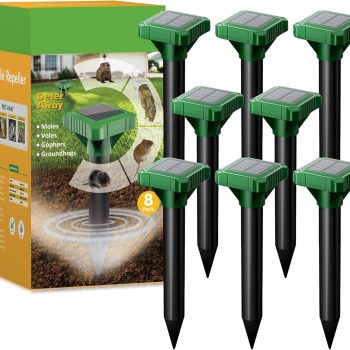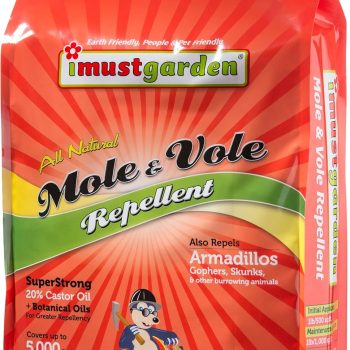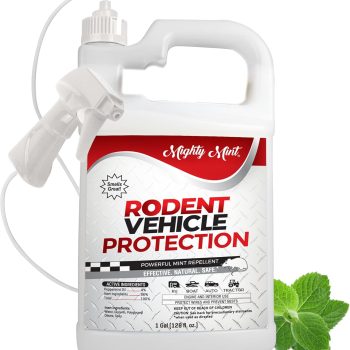Groundhogs Eating My Garden
Solar Groundhog Repellent
Mole Repellent Solar Powered 8 Pack, Ultrasonic Gopher Repeller IP65 Waterproof, Repels Moles
Groundhogs Eating My Garden: Stop Groundhogs from Eating Your Garden
To protect your garden from groundhogs, start by removing accessible food sources and installing barriers. Next, use natural deterrents like cayenne pepper or plant strong-scented herbs like mint. Consistently applying these methods will help keep groundhogs from devouring your plants and maintain a healthy garden.
Identifying the Problem For Groundhogs Eating My Garden
Groundhogs, also known as woodchucks, can wreak havoc on your garden. These creatures are notorious for their insatiable appetites and ability to destroy various plants. If you notice chewed leaves, trampled vegetables, or missing fruits, groundhogs might be the culprits. They typically graze on tender greens, flowers, and even root vegetables. Understanding the extent of the damage helps you address the issue effectively and protect your beloved plants.

Why Groundhogs Target Gardens
Groundhogs target gardens for several reasons. First, they seek lush vegetation as a primary food source during spring and summer. As herbivores, they enjoy munching on a diverse diet that includes clover, dandelions, and garden crops. These animals build burrows near their food supply, creating a cozy and convenient living situation. As a result, if your garden provides an abundant source of food, groundhogs will likely make it their home. Recognizing this behavior allows you to take proactive measures to safeguard your garden, putting you in control of the situation.
Effective Strategies for Protection
To protect your garden from groundhogs, consider implementing a combination of deterrents. These strategies, when used together, can effectively keep them out. First, physical barriers like fences can be a strong deterrent. Construct a fence at least three feet high and bury the bottom six inches underground to prevent digging. Moreover, adding slanted tops can further deter them from climbing over.
In addition to fencing, repellents can disrupt groundhogs’ presence. Several natural options exist, including garlic and hot pepper sprays. Spraying these mixtures around your garden creates an unpleasant environment for groundhogs. Furthermore, planting herbs such as mint or basil around the perimeter can deter them due to their strong scents.
Lastly, consider using motion-activated devices that emit noise or light to startle groundhogs and discourage them from entering your garden. By combining these strategies, you can protect your garden effectively while promoting a thriving landscape free from groundhog destruction.




















